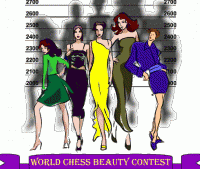
10 chess books you don't want to miss
When I was a kid, PCs weren’t that widespread yet, so books were our #1 choice when it came to chess studies. Of course, innovative technologies speed up the process of learning chess, but the old methods shouldn’t be totally neglected too. That’s why some of the books that I liked during my childhood are admired by me now not less than contemporary chess software.
The saying “a man is what he eats” can be applied to chess literature too – swallow a second-rate scribble written for the sake of earning easy money, and you may not only waste a lot of time, but form wrong perceptions of the game, its principles and players. On the contrary, some writers put soul into their books and try to do their best to help the readers increase their chess level and (importantly) gain pleasure during the process.
Thanks to the Internet and my home library, I have access to a few hundred chess volumes. Based on the popularity of such discussion topics as “what chess book should I read?” or “is this one any good?”, I decided to present to you a short list of my favorite chess books. Here it goes:

M. Dvoretsky - all his books, not just the one pictured above

V. Bologan - "Steps"

S. Rublevsky - "64 lessons of mastership"

A. Panchenko - "Theory and practice of chess endings"

A. Karpov - "My best chess games"

E. Bareev, I. Levitov - "Notes of the chess second" (aka "From London to Elista")

N. Shumilin - "Chess problems"

D. Bronstein - "The Zurich International Chess Tournament 1953"

G. Kasparov - "My great predecessors"

B. Fischer - "My 60 memorable games"
Have a great time reading these awesome books!
P.S. I tried to translate the titles of the books as accurately as possible, and understand that, unfortunately, some of the volumes may not be available in English. However, if you search hard you may find them. Anyway, even by looking through a Russian version of the book you will learn a lot – remember that Bobby Fischer himself mastered Russian for the sake of reading Soviet chess books and magazines!
Author: WGM Natalia Pogonina, http://pogonina.com






